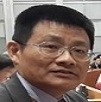
Bor-Yann Chen
National I-Lan University, Taiwan
Title: Exploring optimal supplement strategy of polyphenolics-abundant herbal extracts for bioenergy stimulation in microbial fuel cells
Biography
Biography: Bor-Yann Chen
Abstract
This serial study revealed the optimal strategy to supplement extracts of polyphenolics abundant medicinal herbs and Camellia tea as electron shuttles (ESs) for stimulating bioenergy generation in microbial fuel cells (MFCs). Apparently, Camellia sinensis (L.) Kuntze and Syzygium aromaticum were promising electroactive ESs. Moderate temperature (ca. 65°C) and slightly alkaline pHs (~10) were electrochemically feasible conditions for herbal extraction. Optimal contents of polyphenolics rich herbs and tea extracts with maximal electrochemical activities could be stably obtained. Power density of MFC supplemented with Camellia green tea extract could significantly increase ca. 176%, suggesting that unfermented green tea extract would be the most appropriate ESs. As correlation analysis indicated that total phenolic contents and electron shuttling capabilities were all electrochemically associated. In addition, chemical structure is strongly affected whether antioxidant activities of polyphenolics abundant herbal extracts could be reversibly switched to be electron shuttling capabilities (e.g., substitution patterns). Dihydroxyl substiutuents of ortho or para to each other were very likely promising for electron-shuttling, but not for meta substituents. Moreover, bioelectrochemical treatment upon medicinal herbal extracts (e.g., cyclic electron dationng and withdrawing processes) might provide an electroactive alternative to attenuate herbal biotoxicity to fully express bioenergy-shuttling activities in applications (e.g., bioenergy extraction and herbal medication).

